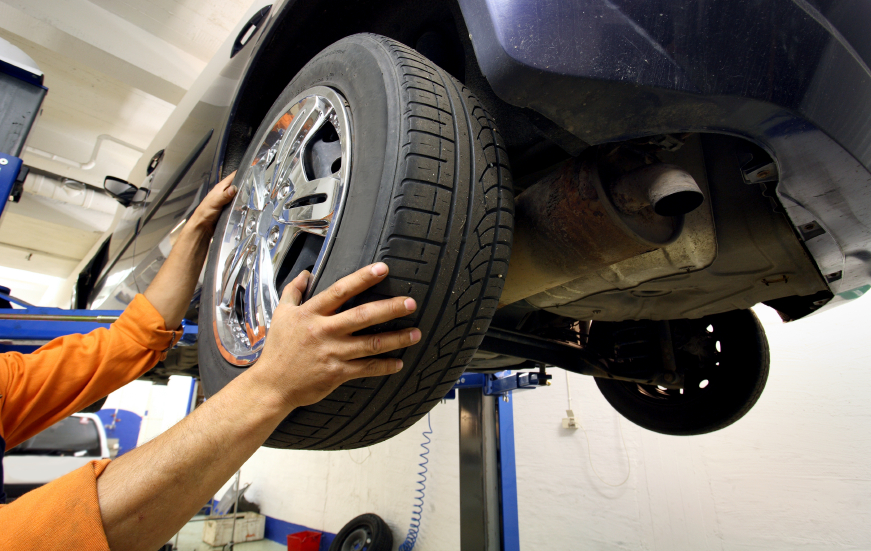
Suspension interacts direct with car’s steering system to provide enough control. Suspension should absorb enough energy from bumps to keep the car under control and stable. Over the years of the car’s life, springs, struts and shocks compress and release many times. This eventually causes them to weaken. Suspension system is essential for cushioning, cornering and road handling. It does play a significant part in ensuring safe driving experience. We should always come to a conclusion that suspension plays a significant part in ensuring our safety. Broken and work suspension system is a common cause of accidents. In specific driving conditions, poor suspension could also cause the car to roll over.
It should be easy to spot symptoms of suspension problems, such as noise or vibration when cornering and uneven tire wear. Specific driving conditions and aggressive driving habits could cause the suspension system to wear out more quickly and need to be replaced. We should make sure that maintenance is performed regularly for wheel alignment and chassis lubrication. Priority should be given to components that can keep the car working properly. As an example, tire alignment is essential to make sure that the life of our tires can be lengthened. Improper alignment can cause premature tire failure due to excessive wear on specific sections. New tires can be expensive for some cars, so we should try to make them last longer.
Periodic alignment adjustment and checks are necessary, because they can save us a lot of money over the life of our car. It should be very easy to find out whether our car is out of alignment. It may tend to pull to one side while we drive. Tires are the primary contact points between the road and our car. They are relatively expensive, so it is important to keep them in reasonable condition. We should make sure that the tire pressure is within a recommended range. Tires are considered second only to braking system in terms of safety devices. Having too low or too high pressure in our tire can affect handling and braking.
We should keep our tires properly inflated to ensure better safety and longer tire life. Proper inflation can also improve our gas mileage by up to 5 percent. Tire pressure should be checked each month using gauges that we can purchase at lower costs. Tires should be checked at about room temperature and a few hours after we drove the car. All four tires should be checked and compared to guidelines in owner’s manual. Over-inflated tires can burst more easily and they could also compromise our stopping and handling ability. On the other hand, underinflated tires could cause additional frictions and tires will wear out more quickly. Blowout could also happen if these tires overheat. It is a good idea to rotate tire every 5,000 miles or so to increase their live by evening out their rate of wear.














